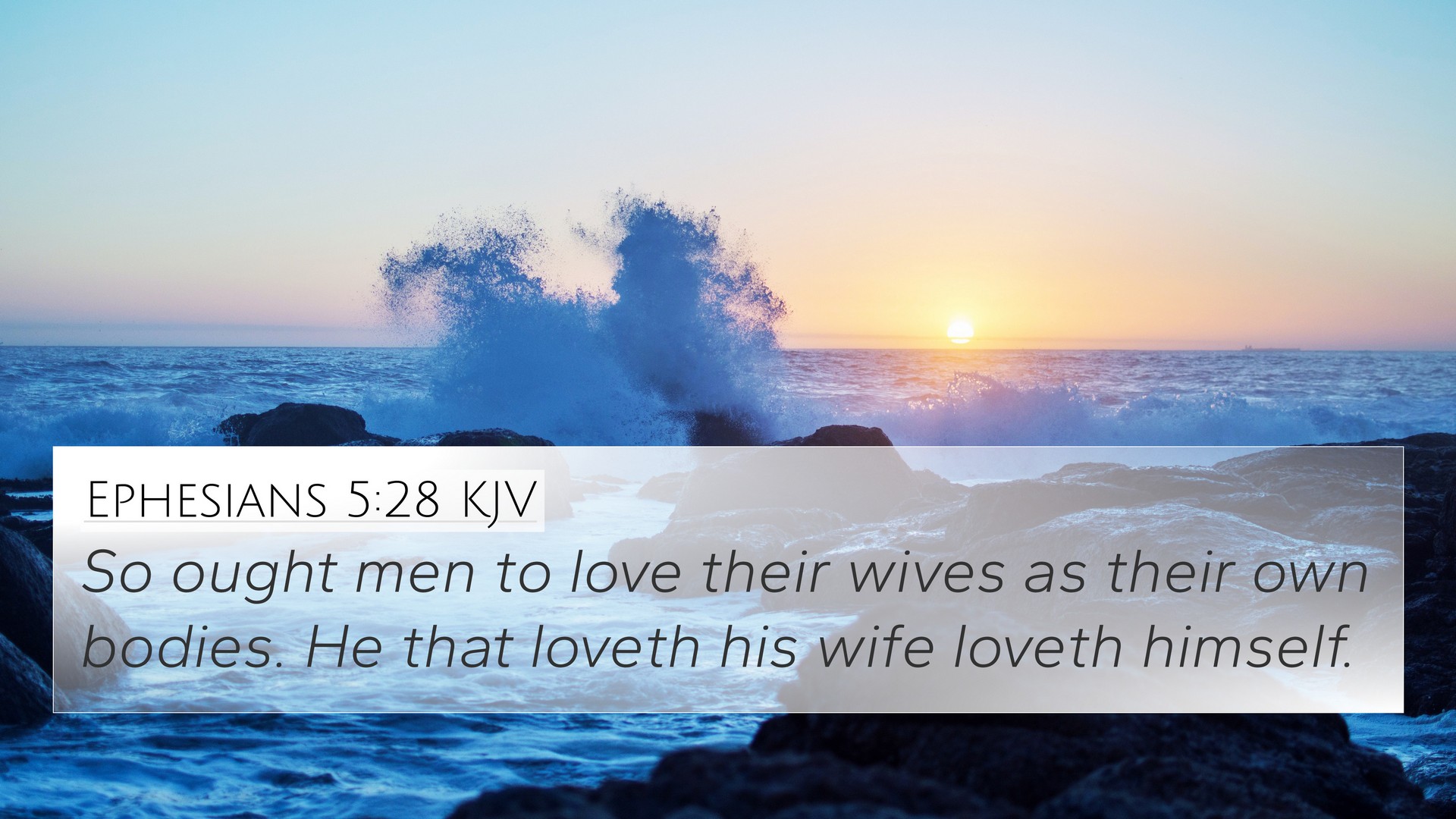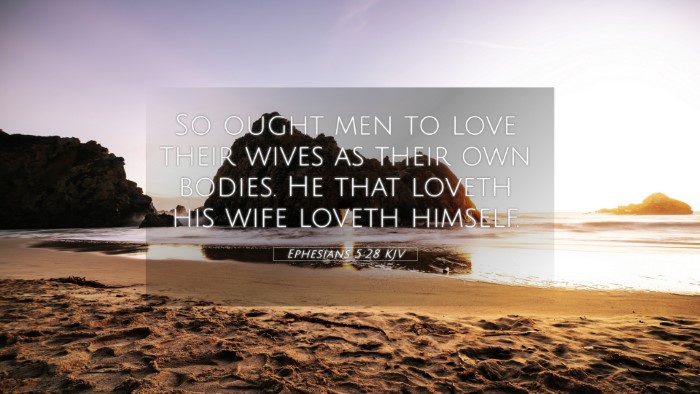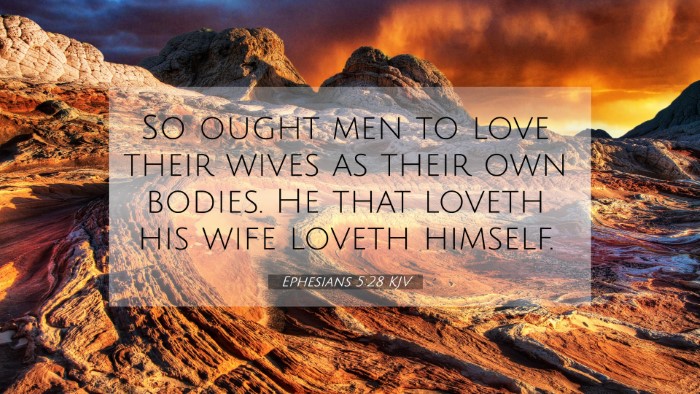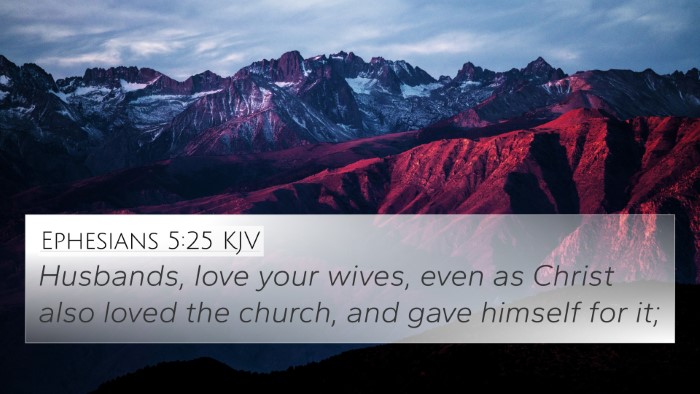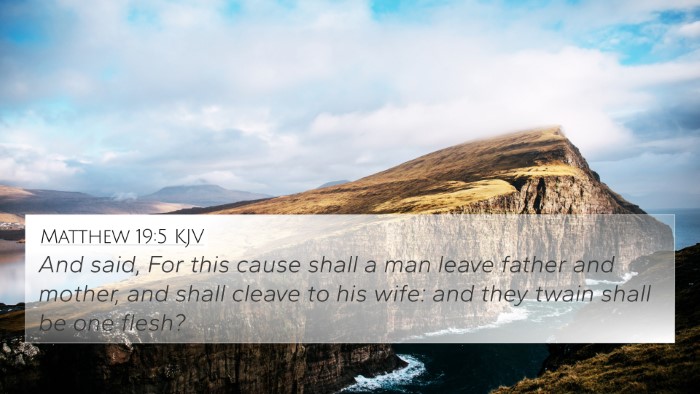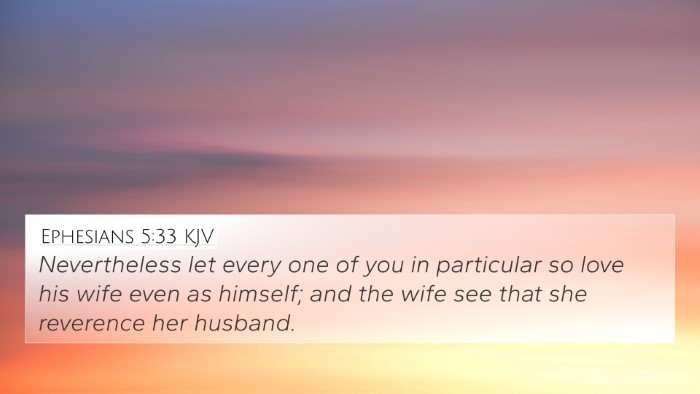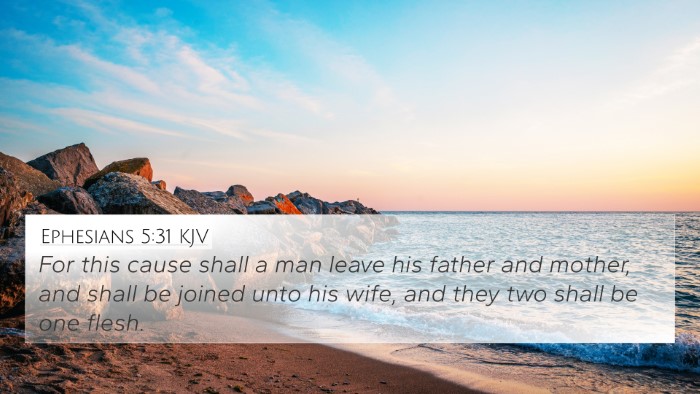Ephesians 5:28 - Summary of Meaning and Insights
Verse: "So ought men to love their wives as their own bodies. He that loveth his wife loveth himself." (Ephesians 5:28, KJV)
This verse elucidates the profound and reciprocal relationship in marriage, urging husbands to love their wives with the same care and devotion they have for their own bodies. The implication is that such love is natural, necessary, and deeply rooted in the essence of a man's identity.
Commentary Insights
-
Matthew Henry: Emphasizes the spiritual significance of love within marriage, arguing that true love reflects one's love for oneself. A man who truly understands his own being is called to nurture and cherish his wife, as both are united in the eyes of God.
-
Albert Barnes: Highlights the mutual relationship between love for oneself and love for one's wife, stressing that affection builds a strong foundation for a marital bond. Barnes notes that the care given to one’s body should mirror the care given to one’s spouse, underscoring the essential unity of the marital relationship.
-
Adam Clarke: Analyzes the metaphor of love being like caring for one's own body, arguing that neglect of a spouse is akin to self-neglect. Clarke suggests that this love is not merely emotional but is demonstrated through actions, fostering a deep commitment and protection.
Thematic Connections to Other Bible Verses
The teachings found in Ephesians 5:28 resonate with various biblical themes regarding love, marriage, and unity. Here are some key cross-references:
- Genesis 2:24: "Therefore shall a man leave his father and mother, and shall cleave unto his wife: and they shall be one flesh."
- 1 Corinthians 7:3: "Let the husband render unto the wife due benevolence: and likewise also the wife unto the husband."
- Colossians 3:19: "Husbands, love your wives, and be not bitter against them."
- 1 Peter 3:7: "Likewise, ye husbands, dwell with them according to knowledge, giving honor unto the wife, as unto the weaker vessel."
- Proverbs 5:18-19: "Let thy fountain be blessed: and rejoice with the wife of thy youth. Let her be as the loving hind and pleasant doe; let her breasts satisfy thee at all times; and be thou ravished always with her love."
- Song of Solomon 8:6-7: "Set me as a seal upon thine heart, as a seal upon thine arm: for love is strong as death; jealousy is cruel as the grave."
- John 15:12: "This is my commandment, That ye love one another, as I have loved you."
Understanding Through Cross-Referencing
Cross-referencing Ephesians 5:28 with other biblical texts reveals a comprehensive understanding of marital love.
Using tools for Bible cross-referencing helps to identify connections within the scripture. Resources like a Bible concordance or a Bible cross-reference guide can provide insights into how to use these references effectively.
Cross-reference Bible study methods make it easier to see the relationship between different scriptures, enhancing the understanding of biblical themes.
Comparative Analysis of Relationships in Scripture
Ephesians 5:28 serves not only as a directive for husbands but also as a foundation for understanding the divine intention of marriage. By examining bible verses that relate to each other, we see how this verse aligns with God's overarching theme of love and selflessness.
Engaging with Inter-Biblical Dialogues
Engaging with inter-biblical dialogues helps one discover the profound layers of meaning across both the Old and New Testaments. Identifying connections, like those between Genesis and Ephesians, enhances the depth of interpretation.
Conclusion
Understanding Ephesians 5:28 through these varied lenses—commentaries and thematic connections—illuminates the scripture's rich intent. By embracing scriptural cross-referencing, one can deepen their understanding of biblical love, marital relationships, and the principles that govern them.
